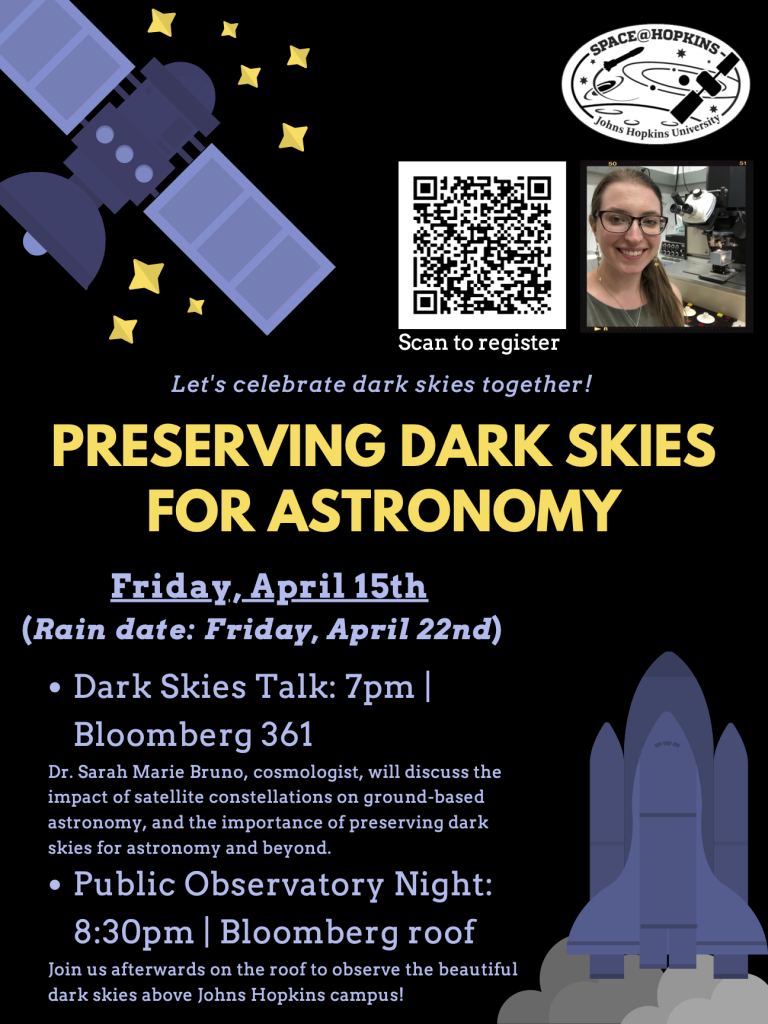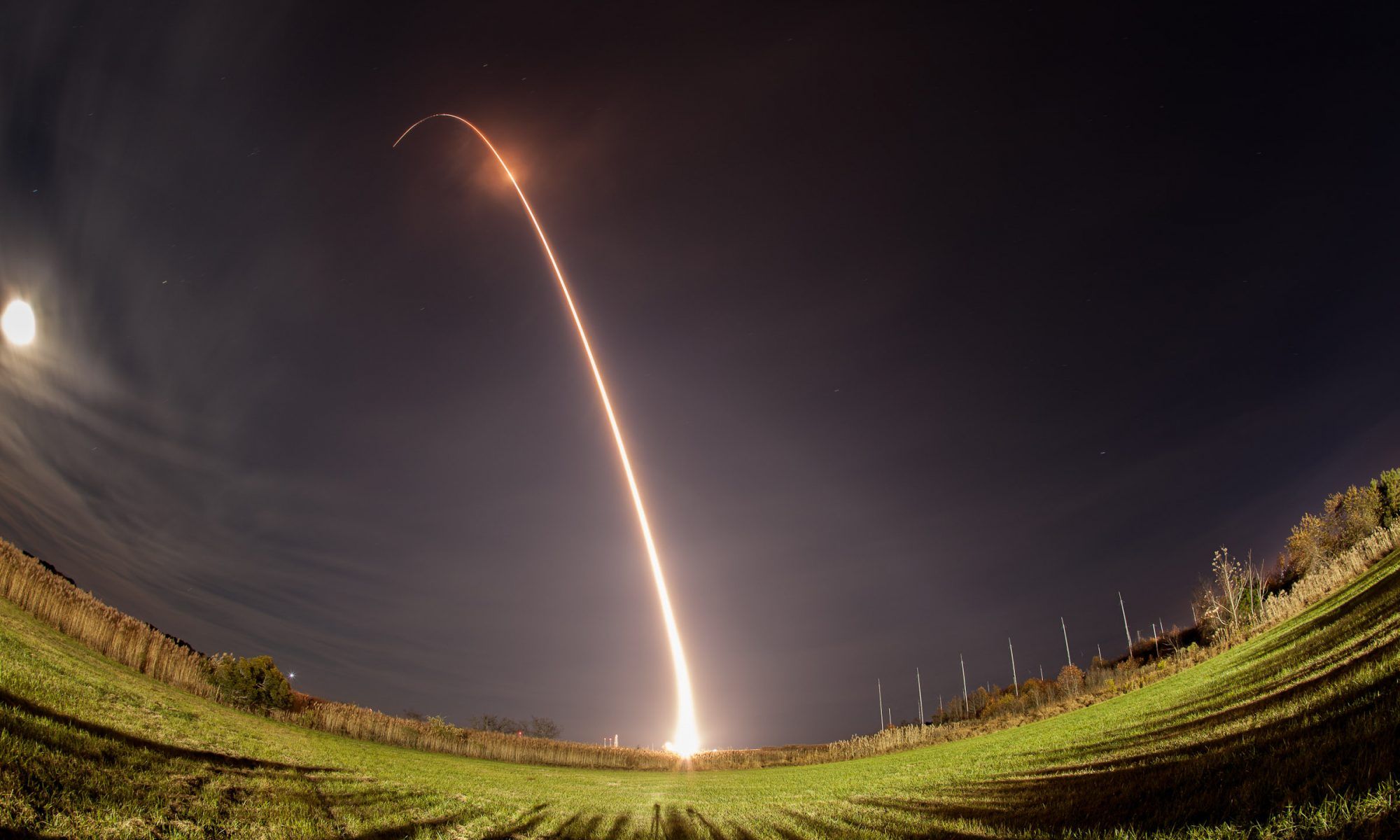
Happy April! International Dark Sky Week is coming up later this month. We are delighted to invite you to attend a special two-part event in celebration of dark skies!
- 4/15/22 @ 7pm ET – Dark Skies Presentation: Join us on Friday, April 15th at 7pm in room 361 of the Bloomberg Center for Physics and Astronomy (Johns Hopkins University Homewood Campus). Dr. Sarah Marie Bruno (JHU), cosmologist, will discuss the impact of satellite constellations on ground-based astronomy, and the importance of preserving dark skies for astronomy and beyond. Light refreshments will be served directly following the talk.
Preserving Dark Skies for Astronomy: The starry night sky has inspired humanity from the dawn of our history. However, the night sky we can see from Baltimore in 2022 looks vastly different from the skies that Galileo Galilei observed with his telescope or the skies that inspired the star stories of indigenous peoples in North America. Artificial lighting from ground-based sources and reflections off satellites can impact astronomy and impede our ability to witness the natural beauty of the skies. The Milky Way, once a fixture of human experience, is now hidden from view for over two thirds of the world’s population. Sadly, light pollution is only getting worse with the increasing number of commercial satellites flooding low-Earth orbits. While satellite constellations such as SpaceX’s Starlink will likely boost the global economy and increase internet accessibility worldwide, they will introduce additional light pollution and foreground contamination which may greatly impede astronomical observations from the ground. Specifically, solar reflections, radio frequency transmission, and thermal emission will impact ground-based astronomy in the optical, radio, and microwave frequencies, respectively. Bruno wilI (1) discuss the projected impact of the growing space industry on the field of astronomy, (2) present proposed strategies for mitigating these effects, and (3) reflect on the importance of preserving the dark sky environment not only for astronomy, but for human health and wellbeing.
- 4/15/22 @ 8:30pm ET – Observatory Open House: After Dr. Bruno’s talk, we will migrate up to the roof of the Bloomberg building for an observatory open house. We expect that observing will be possible beginning around 8:30pm. We will use the telescope in the observatory to view the stars and planets and an additional smaller telescope on the roof to observe the Moon. Join us in celebrating the beautiful dark skies above Johns Hopkins campus!
Please note that due to space limitations on the Bloomberg roof, this event is restricted to the first 50 registrants. Please sign up here to attend.
The event is free to attend and free parking will be available on the Upper Muller Lot (located next to the Bloomberg building and accessible off of San Martin Drive.)
Note: This event (both talk and observatory night) is subject to rescheduling depending on the weather. The following Friday (4/22) is a backup day. Registered attendees will receive an email by the evening of April 14th confirming whether the event will take place April 15th or be postponed to April 22nd.
